Irish MSF Project Coordinator Sarah Leahy describes a day working with MSF at a mobile healthcare clinic in Bijapur, India.
‘The car comes to a sudden halt. A herd of cattle blocks the road on which our mobile clinic team is traveling in a convoy from our base in Bijapur, a small town in Chhattisgarh, to a remote village in the surrounding jungle. We are en route to conduct our daily primary health care clinic in the village. Our team, sitting in five SUVs, consists of doctors, nurses, registrars, lab technicians, medicine dispensers, health educators, and translators. I am here to support the team in my capacity as Project Coordinator, a position I have held since January 2020, back when times were normal.
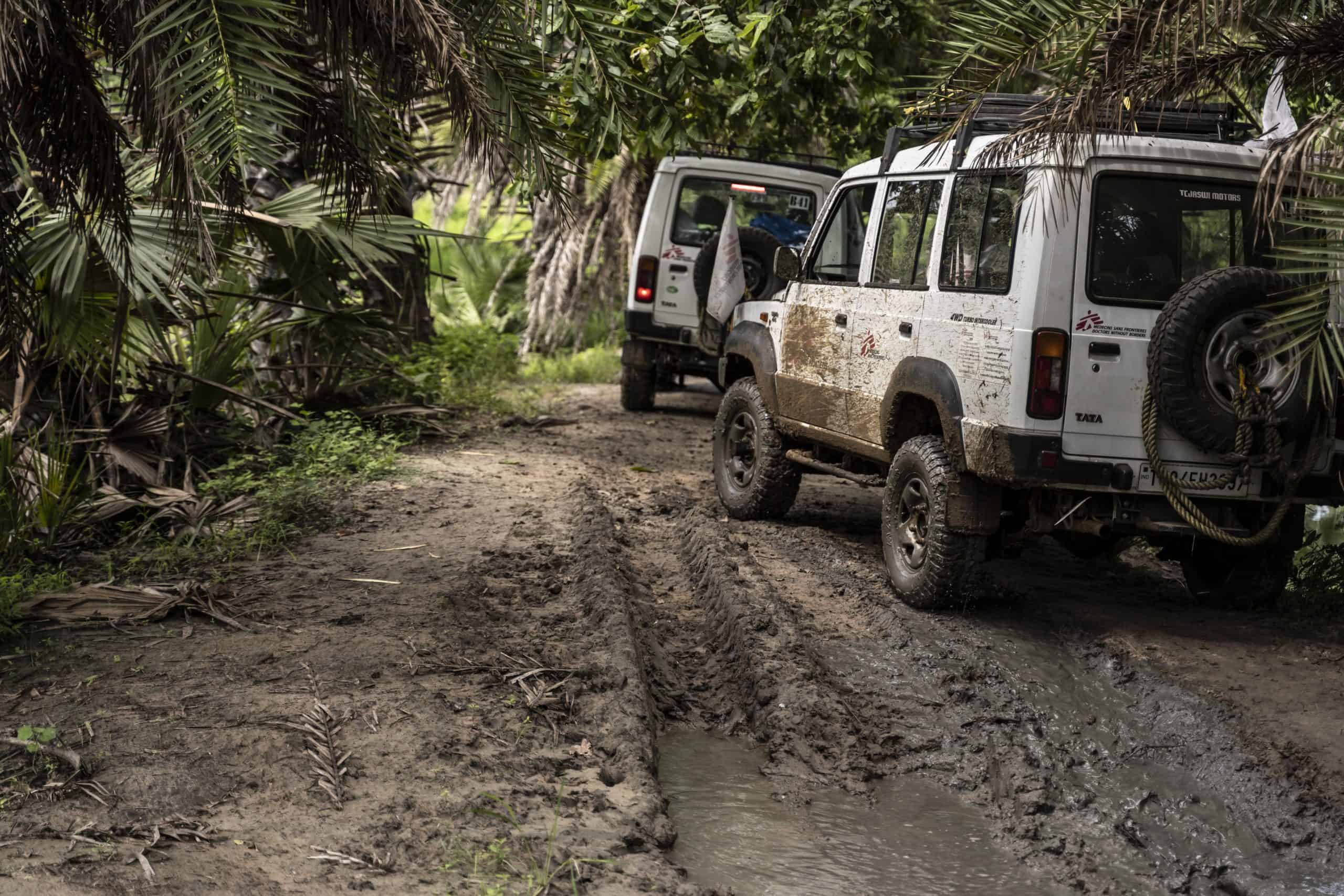
The last 8km of our journey is off-road. During the dry season, we usually drive all the way to our designated clinic site but the monsoon rains for the past few weeks have made it impossible for the cars to make it the whole way.
No access to basic healthcare
Our route involves crossing rivers and paddy fields and in the rainy season, the cars often get stuck in the mud. So we cover the last 3 km on foot. Trekking through the slippery mud at a fast pace is not an easy job – each clinic member carries up to 12 kilograms of vital kit on their back without which we cannot operate our clinics. Our bags consist of medicines, PPEs, plastic sheets, nutritional paste for malnourished children, bed nets, lab testing kit, and vaccines. We wear big ponchos to protect ourselves and our precious material from the pouring rain.
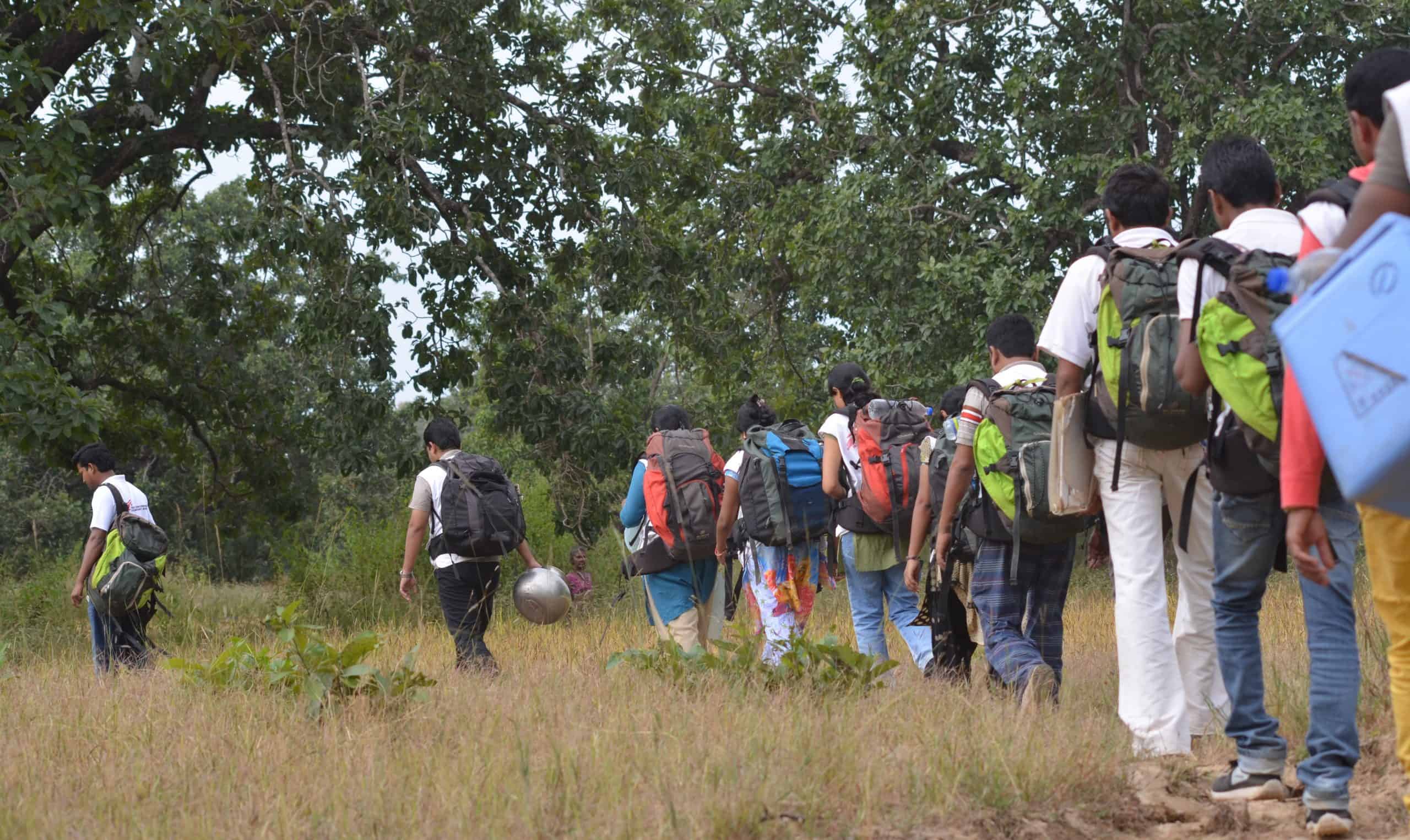
On our way to the clinic on foot, we make some friends along the way. While most are welcome, say, dogs, goats, cows, piglets, and the odd peacock, others can be quite dangerous, like cobras and kraits. As our clinical activities take place under trees for shelter and shade, it is always necessary to look both at the ground and up the trees to make sure no snakes are around!
MSF is working in the Bijapur district of Southern Chhattisgarh in India, a place of a longstanding low-intensity conflict between Indian security forces and a left-wing extremist group for the past 12 years. MSF team works to provide primary health care services by means of mobile clinics in five different locations in the jungle to the people affected by the conflict.
Our mobile clinic operations focus on mother and child healthcare. Malaria, respiratory infections and skin disorders such as scabies are common ailments treated at our clinic, as well as malnutrition. There is a strong emphasis on reproductive health also. Last year we treated over 24,000 patients at our mobile clinics. These are patients who, without the presence of MSF, would have little or no access to basic healthcare, not even paracetamol for a headache.
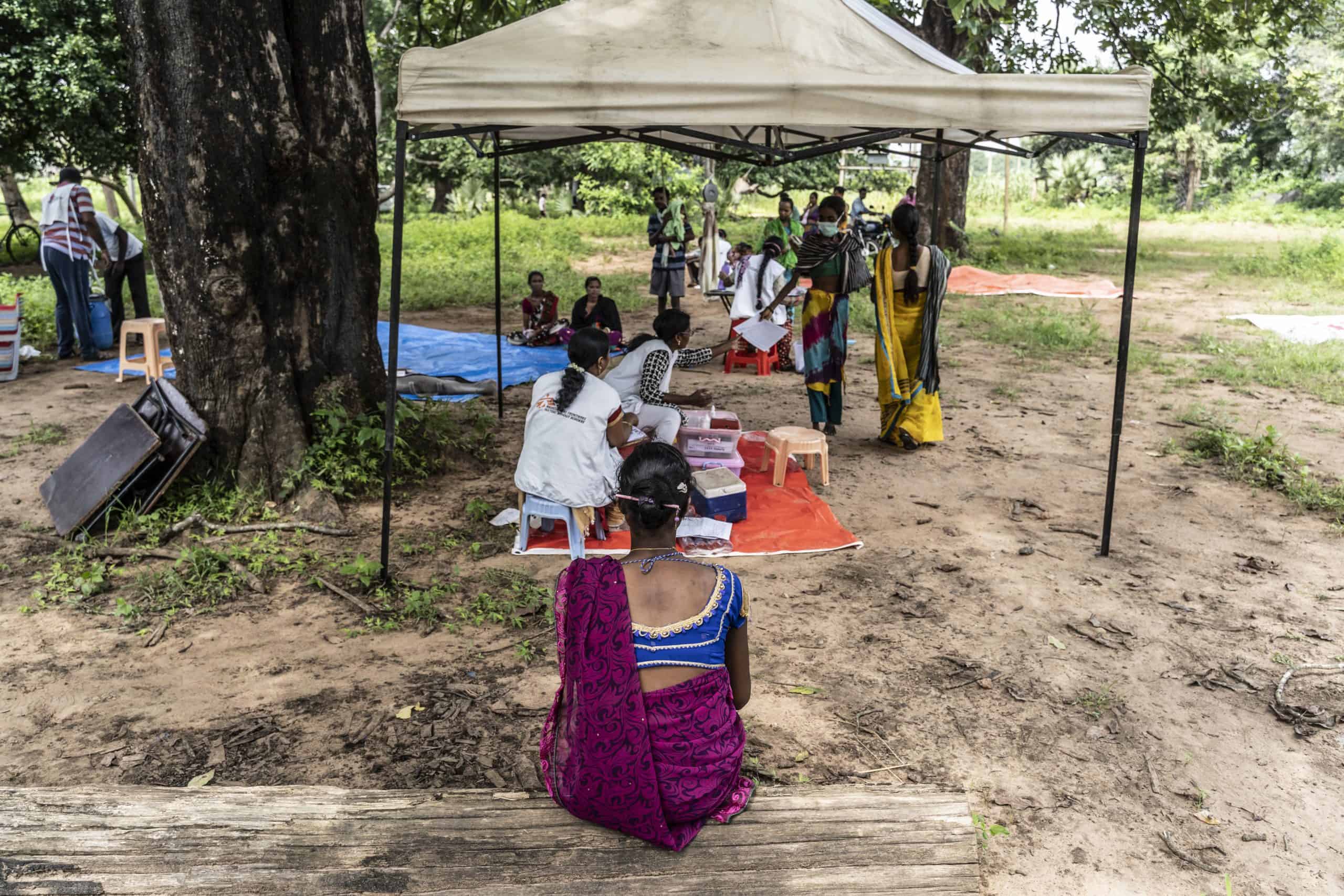
Beautiful occasions like this happen
During our visit, our medical team delivered a healthy baby girl at our clinic site, which is the space under a collection of trees. Just as our clinic team arrived at the site, a young woman expecting her first baby arrived too, in advanced labor; she had walked over 5km through the jungle to reach us. Thankfully, our team is well equipped and used to these situations so they immediately jumped into action and put the woman at ease. After a safe delivery by nurse Lata, vaccines were administered and we took the mother and her child to the nearest hospital for observation just to be on the safe side. It gives the team a real morale boost when beautiful occasions like this happen.
During the COVID-19 lockdown, we lost access to our clinics and communities for two and a half months. Finally, in June, to our great relief, we resumed our activities and have been back working as normally as possible. We had to adapt our clinic setup so much since the COVID-19 pandemic hit. We created two zones – red and green – at each clinic for our patients to protect everyone. The team in the red zone treats patients who have a fever or other respiratory issues and all other cases are treated by our green team. Amid all this, our top priority remains protecting our staff and patients.
No time to think
Our health promotion team, under the watchful eye of nurse Priyanka, focuses on educating the communities where we operate (including visiting schools and markets) on health needs such as the prevention and treatment of malaria, diarrhea, skin disease and other common ailments. More recently, a major focus has been put on the importance of handwashing, physical distancing, and wearing face masks. For people who have no access to running water, and where many live together in one room, these practices are a luxury not always afforded to them.
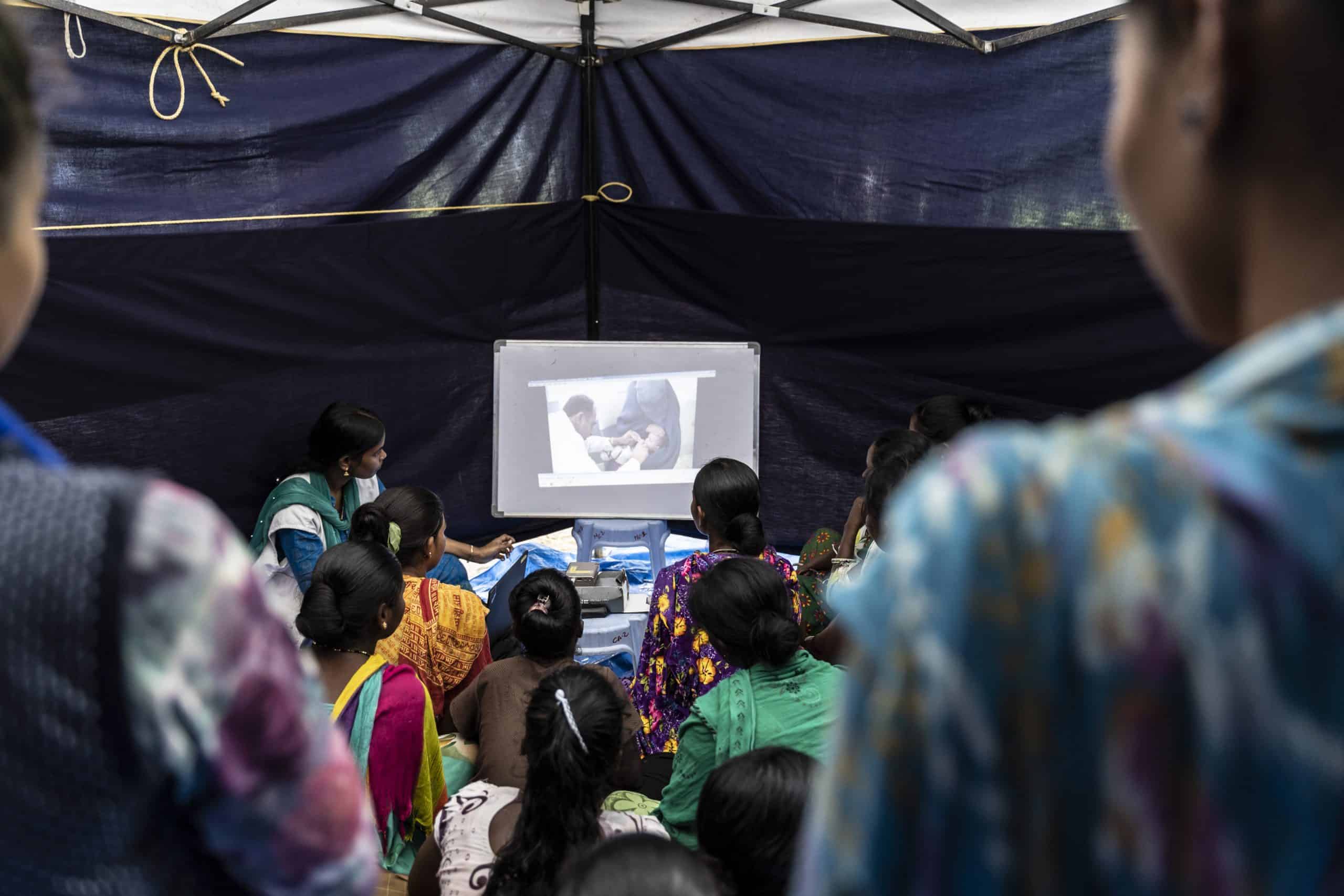
In just one day at the clinic, we treated 149 patients- a high number for July. We immediately sent one seriously ill patient to a hospital by MSF car and nine other ill patients the following day. Their transport costs are covered by MSF. Days are long in the jungle but time flies by and there is simply no time to think.
Ready for another day in the jungle
We trek back to our cars and take the 90-minute bumpy ride over rough and slippery terrain to reach home. We are all exhausted and are fighting sleep on our way back. For me, it is time for a sweet, warm chai and fresh guava from the garden before I begin tackling the mounting admin work waiting at my office desk.
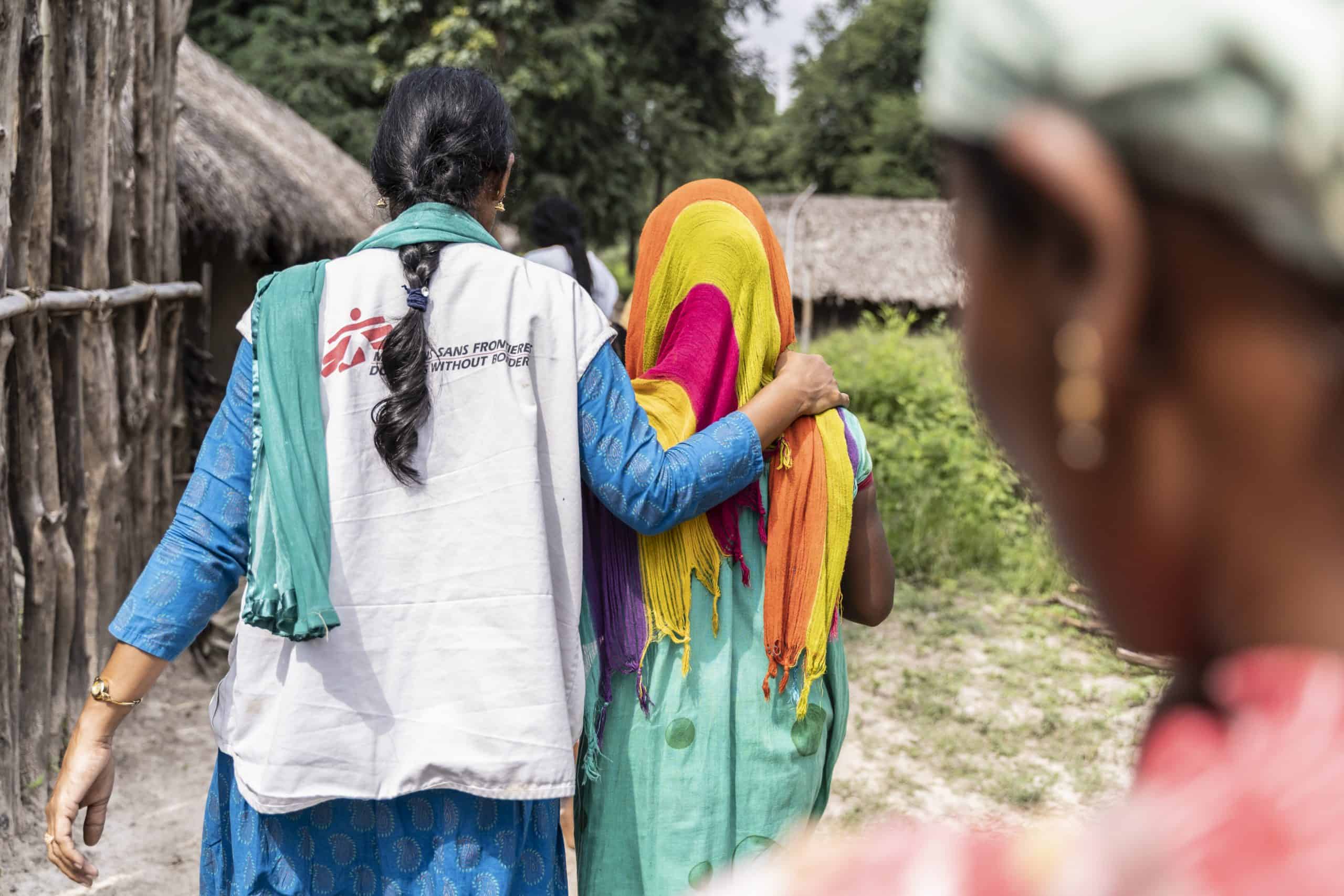
At 7 pm I’ll call it a night and get some rest, ready for another day in the jungle tomorrow. It is an immense privilege, afforded to few, to bear witness to the lives and struggles of our beneficiaries in Bijapur. Falling asleep, I cannot help but feel like the luckiest girl on earth to have my job.’
-
Related:
- Chhattisgarh
- COVID-19
- Mobile Clinics












